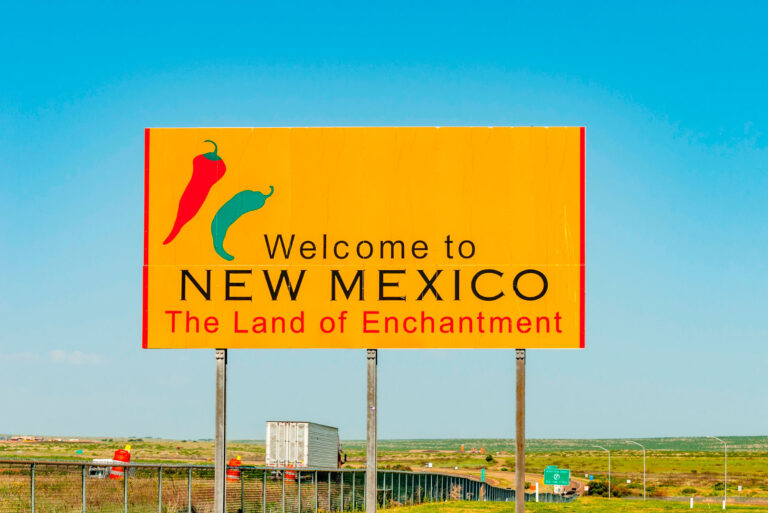New Mexico Clean Fuel Standard Act Provides Opportunities for Owners of EV Charging Stations
May 28, 2024
New Mexico recently became the fourth state to implement a low carbon fuel standard, known as the New Mexico Clean Fuel Standard (CFS). This program will promote the adoption of sustainable transportation fuels through rebate opportunities for owners of electric vehicle charging stations.
This article explains how the New Mexico CFS will give owners of electric vehicle (EV) charging stations the opportunity to earn rebates through their reduced carbon emissions.
The Purpose of New Mexico’s Clean Fuel Standard

The program also aims to keep New Mexico positioned as an energy leader as the country transitions away from fossil fuels in the coming decades. With the implementation of the CFS, the New Mexico Environment Department plans to increase production across all energy industries, primarily for clean energy and alternate fuels. This will include incentivizing and funding the widespread adoption of low-carbon fuels and the infrastructure necessary for their usage. This will open the door to new transportation fuel industries and job opportunities across the state.
The CFS jumpstarts this transition to low carbon and alternate fuels by creating market-based incentives for transportation fuel producers who lower the CI of their fuels. Fleet owners with EV charging stations will be able to take advantage of these financial opportunities by earning credits for the usage of their low-carbon fuels.
Generating Credits Under New Mexico’s CFS
Under the CFS, transportation fuels will be assigned a carbon intensity score based on their environmental impacts. Fuels like electricity, biodiesel, and natural gas will have a lower CI score than traditional fossil fuels, like gas and diesel. The CFS will set an allowable CI score for transportation fuels that producers must reach. Each year, the CI benchmark will decrease, effectively reducing the carbon emissions from transportation fuels over time. Fuel producers who fail to meet these benchmarks – by continuing to sell high-carbon fuels – will fall into a credit deficit. These fuel producers must offset their deficit through the purchase of CFS credits.
Fuel producers who exceed the annual benchmarks through the production of clean fuels will generate CFS credits, which can be sold to fuel suppliers in a deficit. Through this approach, fleet owners with EV charging stations will have the opportunity to earn additional revenue through the use of their electric vehicles.
In order to generate CFS credits, fleet owners must accurately measure the emissions offset from shifting from traditional combustion vehicles to electric ones. When you partner with Smart Charging Technologies (SCT) we’ll handle the logistics of the CFS, including the initial application, ongoing compliance monitoring, and optimization strategies that maximize credit generation by selling in bulk through our Smart Rebates program.
Contact us today to learn more about how we help you earn CFS credits.
While New Mexico’s CFS was officially adopted in March 2024, the program is still in the development phase. The legislation has passed the bill onto the New Mexico Environmental Improvement Board to finalize the rulings that will determine credit generation, credit sales, and eligibility with the program, with a deadline to fully implement the program by June 1, 2026. Stay up-to-date with changes to the New Mexico CFS and check back for updates as this new program unfolds.
Related Posts









